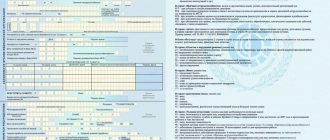In most cases, sick leave lasts about a week. But there are situations when a person loses his ability to work for a long time. This raises a number of questions for both employers and company employees. For example, many people are interested in whether sick leave is paid for more than 4 months, and whether a person who has lost the ability to perform their job duties for a long time retains a job.
General procedure for registering sick leave
In 2022, the procedure for issuing certificates of incapacity for work is still regulated by Order No. 624n of the Ministry of Health and Social Development of Russia dated June 29, 2011 (hereinafter referred to as Order No. 624n). Let us immediately note that there were no changes to it in 2019.
According to the general rule (clauses 13, 11 and 12 of Order No. 624n, respectively):
- sole attending physician - can issue a certificate of incapacity for work lasting only up to 15 calendar days (depending on the severity of the disease);
- dentist or paramedic – for a period of no more than 10 days .
Disputes with employees who are on sick leave for an excessively long time
Almost every organization has employees who are often on sick leave for long periods of time. Not every employer will take kindly to the fact that his employee is sick, is on sick leave for quite a long time and does not know when he will begin his work duties. As a result, conflict situations arise between the employee and the employer regarding this matter.
If we talk about how long you can be on sick leave, it should be noted that the periods of temporary disability are determined in accordance with the Procedure for issuing certificates of incapacity for work, approved by Order of the Ministry of Health and Social Development of Russia dated June 29, 2011 No. 624n “On approval of the Procedure for issuing certificates of incapacity for work.” In accordance with clause 11 of the Procedure for outpatient treatment of diseases (injuries) associated with temporary loss of working capacity of citizens, a medical worker single-handedly issues a certificate of incapacity for work at a time for up to 10 calendar days (until the next examination of the citizen by a medical worker) and single-handedly extends it for a period of up to 30 calendar days. For periods of temporary incapacity for work exceeding 30 calendar days, a certificate of incapacity for work is issued by decision of the medical commission. According to paragraph 2 of paragraph 13, by decision of the medical commission, with a favorable clinical and work prognosis, a certificate of incapacity for work can be issued in the prescribed manner before the day of restoration of working capacity, but for a period of no more than 10 months, and in some cases (injuries, conditions after reconstructive operations, tuberculosis) - for a period of no more than 12 months with a frequency of extension by decision of the medical commission at least every 30 calendar days. There are no restrictions on the number of certificates of incapacity for work issued to an employee during a year or another period of time.
By conducting a medical and social examination (MSE), a citizen can be recognized as disabled (clause 2 of the Rules for recognizing a person as disabled, approved by Decree of the Government of the Russian Federation of February 20, 2006 N 95; hereinafter referred to as the Rules). Citizens who have persistent limitations in their ability to live and work and who are in need of social protection based on the conclusion of a medical commission are referred to MSE for:
- obvious unfavorable clinical and labor prognosis, regardless of the duration of temporary disability, but no later than 4 months from the date of its start;
- favorable clinical and work prognosis with temporary disability lasting over 10 months (in some cases: conditions after injuries and reconstructive operations, in the treatment of tuberculosis - over 12 months);
- the need to change the professional rehabilitation program for working disabled people in the event of a worsening clinical and work prognosis, regardless of the disability group and the duration of temporary disability (clause 28 of the Procedure).
Thus, the maximum duration of the period of sick leave is not established by law.
A sick leave certificate is issued for the entire period of treatment until recovery or until disability is established. The question arises: is it possible to fire an employee who has been on sick leave for an excessively long time? Previously, the Labor Code of the Russian Federation provided for dismissal if an employee is on sick leave for more than four months in a row (Clause 5, Article 33 of the Labor Code of the Russian Federation). Currently, long-term illness is not mentioned among the grounds for termination of an employment contract (Article 77 of the Labor Code of the Russian Federation). Accordingly, an employee who is often or long sick cannot be fired due to this circumstance at the initiative of the employer. Moreover, in Art. 81 of the Labor Code of the Russian Federation states that the dismissal of an employee at the initiative of the employer is not allowed (except in the case of liquidation of an organization or termination of activities by an individual entrepreneur) during the period of his temporary disability and while on vacation. Thus, the Labor Code of the Russian Federation guarantees the employee the preservation of his job for a period of long-term temporary disability.
However, the employer can offer the employee to resign of his own free will (Article 80 of the Labor Code of the Russian Federation). Let's consider the ruling of the St. Petersburg City Court dated September 20, 2011 in case No. 33-14267/2011.
The employee went to court to challenge his voluntary dismissal, considering it illegal, since he did not write a letter of resignation and was on sick leave at the time of his dismissal, which was confirmed by a certificate from the district clinic. The court heard testimony from a witness that the head of the personnel department asked the plaintiff to write a letter of resignation of his own free will, but he refused. However, the court found no violations during the dismissal. He indicated that the witness's testimony does not affect the court's conclusions. The fact that the employee was on sick leave does not affect the legality of termination of the employment contract, since the initiator of the dismissal was the employee, not the employer.
Thus, we can conclude that it will be quite difficult for an employee to prove in court the fact that the dismissal of his own free will was carried out under the coercion of the employer.
The employer can also offer the employee dismissal by agreement of the parties (clause 1, part 1, article 77 of the Labor Code of the Russian Federation). With the consent of the employee, the employment contract is terminated at any time by agreement of the parties (Article 78 of the Labor Code of the Russian Federation). In this case, we can give an example of a dismissed employee successfully challenging his dismissal. Let's consider the appeal ruling of the Supreme Court of the Republic of Buryatia dated June 18, 2012 in case No. 33-156). The court carefully examined the agreement drawn up by the employee and the employer and came to the conclusion that there was no real will of the employee to terminate the employment relationship. The agreement contained the employer's obligation to rehire the employee in the future. In this connection, the court came to the conclusion that the dismissal was illegal under paragraph 1 of part 1 of Art. 77 of the Labor Code of the Russian Federation (by agreement of the parties).
Established part 6 of Art. 81 of the Labor Code of the Russian Federation, the ban on dismissal during a period of temporary incapacity for work of an employee applies only to cases of termination of an employment contract at the initiative of the employer. Dismissal due to the expiration of the employment contract does not apply to such cases. The Sverdlovsk Regional Court came to this conclusion. The employee was dismissed due to the expiration of the employment contract on the basis of clause 2, part 1, art. 77 Labor Code of the Russian Federation. At the time of dismissal, she was temporarily disabled. The plaintiff demanded that the dismissal order be declared illegal and reinstated at work. But the court concluded that the dismissal was lawful. The worker's demands were denied. The decision of the court of first instance was upheld (appeal ruling of the Sverdlovsk Regional Court dated December 24, 2013 No. 33-15642/2013).
As for employees who are sick for a long time and are on a probationary period. In this case, it is necessary to take into account that the employment contract can be terminated on the grounds provided for in Part 1 of Art. 71 of the Labor Code of the Russian Federation during the period established for testing, if the employment contract contains a condition on testing, because according to Art. 70 of the Labor Code of the Russian Federation, the purpose of the hiring test is to check the employee’s suitability for the work assigned to him.
Sick leave is not an obstacle to terminating an employment contract due to circumstances beyond the control of the parties (Article 83 of the Labor Code of the Russian Federation), for example, when depriving a special right for a period of more than 2 months, if this entails the impossibility of work. For example, a driver of an organization, temporarily deprived of his license for violating traffic rules, was dismissed during a period of incapacity for work (Determination of the St. Petersburg City Court dated July 26, 2011 N 33-11291/2011).
It should be noted that the Labor Code of the Russian Federation gives the employer the right, during the period of temporary incapacity of an employee, to accept a new one in his place under a fixed-term employment contract until the previous one returns to work (Part 1 of Article 59 of the Labor Code of the Russian Federation) or to entrust the performance of the duties of an absent employee to another with his written consent in during the working hours established for him (Article 60.2 of the Labor Code of the Russian Federation), or to temporarily transfer another employee to the place of an employee who has been on sick leave for a long time (Part 1 of Article 72.2 of the Labor Code of the Russian Federation). In the latter case, the transfer is carried out only by agreement of the employer and the transferred employee, concluded in writing.
In some cases, an employee’s illness gives the employer the right to terminate the employment relationship with him, but this requires an appropriate medical report, and not a certificate of incapacity for work. According to Art. 73 of the Labor Code of the Russian Federation, an employee who needs to be transferred to another job in accordance with a medical certificate issued in the manner established by federal laws and other regulatory legal acts of the Russian Federation, with his written consent, the employer is obliged to transfer to another job available to the employer that is not contraindicated for the employee state of health.
If an employee who, in accordance with a medical report, needs a temporary transfer to another job for a period of up to four months, refuses the transfer or the employer does not have the corresponding job, then the employer is obliged to suspend the employee from work for the entire period specified in the medical report while maintaining his job ( positions). During the period of suspension from work, wages are not accrued to the employee, except in cases provided for by this Code, other federal laws, collective agreements, agreements, and employment contracts.
If, in accordance with a medical report, an employee needs a temporary transfer to another job for a period of more than four months or a permanent transfer, then if he refuses the transfer or the employer does not have the corresponding job, the employment contract is terminated in accordance with paragraph 8 of part one of Article 77 of this Code .
The Supreme Court of the Russian Federation, in its ruling dated November 25, 2011 No. 19-B11-19, calls such a case of an employee’s refusal to transfer to another job, which he needs in accordance with a medical report, an objective circumstance, that is, independent of the will of the parties to the employment contract and, in in particular, from the will of the employer.
Indeed, Art. 81 of the Labor Code of the Russian Federation does not contain as a basis for dismissal an employee’s refusal to be transferred to another job in accordance with a medical report. However, if there are medical indications, the employer is obliged to dismiss the employee so as not to risk his health when performing his job duties and thereby not cause even greater harm to his health.
In judicial practice, there are examples when an employee tries to appeal such an employer’s decision in court, there are even successful examples of appeal.
For example, the Sovetsky District Court of Vladivostok declared the dismissal illegal under clause 8, part 1, art. 77 of the Labor Code of the Russian Federation, since the employee was temporarily disabled at the time of dismissal. (Case No. 2-1537/11 dated 04/21/2011).
But it would still be more correct to adhere to the position of the Supreme Court of the Russian Federation on this issue.
If, during a medical and social examination, the employee is found to be completely disabled, then the employment contract with him is terminated on the basis of clause 5 of Part 1 of Art. 83 Labor Code of the Russian Federation.
There are known cases when a medical report is issued to an employee in violation of Order of the Ministry of Health of Russia dated March 14, 1996 N 90 “On the procedure for conducting preliminary and periodic medical examinations and medical regulations for admission to the profession.”
The Sovetsky District Court of Krasnoyarsk, by its decision dated February 27, 2008, reinstated the plaintiff, who was dismissed by the employer in accordance with a medical report due to the employer’s lack of relevant work, in her position. The court came to the conclusion that the medical report was taken in violation of Order of the Ministry of Health of Russia dated March 14, 1996 N 90 “On the procedure for conducting preliminary and periodic medical examinations and medical regulations for admission to the profession.”
The violation was that, in accordance with the requirements established by the said Order, the number of medical commissions must be at least seven doctors of the clinic according to their profile. The commission that issued the medical report to the plaintiff included only three doctors, and one of them was not a member of the commission. The doctor whose profile includes making diagnoses of diseases similar to the plaintiff’s was not present at the commission either. In addition, when making the conclusion, the necessary medical documents of the plaintiff were not examined. The conclusion of the medical commission was signed only by its chairman, which also contradicts the requirements of the Order. Such a conclusion cannot give rise to any legal consequences.
In practice, there are cases when the employer was aware of the employee’s disability even when he was hired.
Considering the dismissal under clause 5, part 1, art. 83 of the Labor Code of the Russian Federation (in connection with the recognition of the employee as completely disabled in accordance with a medical report), the plaintiff filed a claim in court for reinstatement at work. In support of the stated requirements, the plaintiff indicated that the employer was aware of his disability even when he was hired (the plaintiff provided the employer with a certificate from a medical and social examination recognizing him as completely disabled). This fact did not prevent the employer from hiring the plaintiff. The plaintiff carried out his official duties for 10 years in special conditions with a reduced working day, and the plaintiff’s disability, in his opinion, does not prevent him from carrying out his official duties, which was confirmed in court. The court found that the basis for the plaintiff’s dismissal was precisely the ITU certificate that he presented to the employer when he was hired.
The court refused to satisfy the plaintiff's claims, but, taking into account the lack of concealment of the fact of total disability by the employee, the court changed the wording of the dismissal to “the employment contract was terminated due to a violation of the established rules for concluding an employment contract, which precludes continuation of work, clause 11, part 1 Art. 77 Labor Code of the Russian Federation." In accordance with clause 11, part 1, art. 77, part 3 art. 84 of the Labor Code of the Russian Federation, the court recovered severance pay from the employer in favor of the employee (decision of the Kamensky District Court of the Rostov Region dated September 28, 2012; appeal ruling of the Rostov Regional Court dated November 29, 2012 in case No. 33-13961).
Thus, having studied the legislation of the Russian Federation and judicial practice on the issue outlined in the topic of this article, we can conclude that, according to Part 6 of Art. 81 of the Labor Code of the Russian Federation, the dismissal of an employee at the initiative of the employer during the period of his temporary incapacity for work is not allowed. Clause 5 of Part 1 of Article 83 of the Labor Code of the Russian Federation can be applied only if there is a medical report, according to which the employee is declared completely incapacitated, and not on the basis of sick leave, including long-term leave. It should also be noted that, on the one hand, the Labor Code of the Russian Federation guarantees the employee the preservation of his job during a period of long-term temporary disability, but there are enough mechanisms that allow the employer to get rid of a long-term ill employee.
Hello Guest! Offer from "Clerk"
Online professional retraining “Accountant on the simplified tax system” with a diploma for 250 academic hours . Learn everything new to avoid mistakes. Online training for 2 months, the stream starts on March 15.
Sign up
Features of registration of long sick leave
When there is a question about continuing treatment or the need to provide additional medical services, a medical commission is assembled. She decides to increase the sick leave period by more than 15 days . Moreover, both with a favorable and unfavorable prognosis.
Such a sick leave is signed by 2 doctors - the attending physician and the chairman of the commission (FSS letter dated 04/08/2013 No. 15-03-11/12-3453).
In addition, the patient may be given a referral for a medical and social examination, which decides the issue of establishing disability.
An employee can submit several certificates of incapacity for work at once. To avoid disputes with the Social Insurance Fund and the tax office, the employer needs to check not only their authenticity, but also their sequence: when a subsequent document refers to the number and date of the previous one.
The maximum period for which sick leave can be issued depends on the reason for its issue:
- illness of the employee himself - no more than 10 months (this is the maximum period of sick leave, taking into account all extensions);
- in some cases (for example, with tuberculosis) – no more than 12 months.
The maximum period of sick leave for child care depends on the age of the child and is sometimes not limited. For example, if the child is under 7 years old, then sick leave is granted for the entire duration of treatment.
Special periods are also provided for sick leave for pregnancy and childbirth. The longest is 194 calendar days and for multiple pregnancies.
Also see “How to check the accuracy of a sick leave certificate.”
Time limits when paying for long-term sick leave
However, in accordance with the law, the employee may not be paid for the entire period of incapacity for work.
The law provides for deadlines taken into account when paying for long-term sick leave. Restrictions have been introduced for sick leave for caring for relatives of an employee (Law No. 255-FZ dated December 29, 2006, Part 5, Article 6):
- for a child under 7 years of age, care is paid for no more than 60 days a year, and for a serious illness included in a special list (approved by Order of the Ministry of Health and Social Development of February 20, 2008 No. 84n) - 90 days a year;
- for children from 7 to 15 years old, the maximum paid number of days of care per year is 45, and for each case of illness - no more than 15;
- paid care for a disabled child under 18 years of age - up to 120 days a year;
- 30 days a year are paid for sick leave certificates issued to care for a sick adult family member, but not more than 7 days for each case.
The restriction does not apply if the child is HIV-infected or the disease is associated with a post-vaccination complication, the child has cancer, and treatment and care were carried out in a hospital setting.
Long-term sick leave of the employee himself is paid in full for all days of illness or injury, with the exception of cases that occurred during the period of vacation at his own expense or presentation of certificates of incapacity for work by persons hired under a fixed-term employment contract and disabled people.
Payment for follow-up treatment in sanatorium-resort conditions is limited to 24 days (Clause 2, Article 6 of Law No. 255-FZ), with the exception of tuberculosis.
Rules for paying long sick leave in 2020
The duration of payment of benefits in case of illness or injury of the employee himself is not limited by time. That is, the employer pays for all days of incapacity for work, regardless of how long the certificate was issued and how many sick days the employee had during the year (Part 1, Article 6 of Law No. 255-FZ).
From July 1, 2017, legislation introduced the possibility of issuing sick leave not only as a paper document, but also with the written consent of the patient - in electronic form with the affixing of an enhanced qualified electronic signature of the health worker and the medical organization (Law dated May 1, 2017 No. 86-FZ).
At the same time, the form of sick leave in 2022 remained the same (approved by order of the Ministry of Health and Social Development of Russia dated April 26, 2011 No. 347n):
Thus, medical institutions, employers and the Social Insurance Fund are switching to electronic document management for sick leave. However, the procedure for payment remains the same.
How is the benefit paid?
Many employers whose employee has been on sick leave for more than four months in a row are faced with the question of how to determine the amount of benefits for him. In order not to make a mistake with the calculation, the company’s accountant needs to know how many days of disability per year are subject to payment.
According to the law, in the event of an employee’s illness, he is paid for all days of incapacity for work during the year. But there are some exceptions. When calculating sick leave, it is important to pay attention to the column “Date of registration of documents in the ITU bureau.”
If there is a note that a disability has been established, then the date of registration of documents in the ITU is considered the date of assignment to this group. From this day on, the employee already has the right to receive disability benefits.
From now on, sick leave payments will no longer be accrued. But you need to understand that if an employee’s disability does not affect his ability to work, then he retains the right to social guarantees provided for by the Labor Code of Russia, in particular to payment of a certificate of incapacity for work.
In this case, a disabled employee is entitled to payments for four consecutive months or for 5 months in a calendar year. This point is reflected in the third paragraph of Law No. 255 “On Social Insurance”, adopted on December 29, 2006. If a person is sick with tuberculosis, then he is awarded benefits for the entire period of treatment.
Dear readers! To solve your problem right now, get a free consultation
— contact the on-duty lawyer in the online chat on the right or call:
+7
— Moscow and region.
+7
— St. Petersburg and region.
8
- Other regions of the Russian Federation
You will not need to waste your time and nerves
- an experienced lawyer will take care of solving all your problems!








